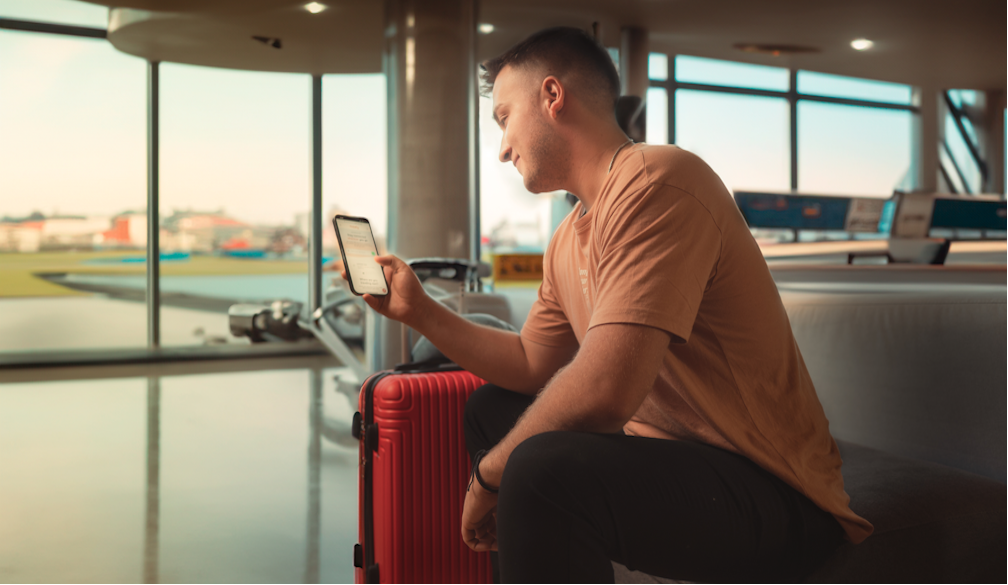The Ultimate Guide On How To Play Video On Car Screen
- Written by The Times

Are you tired of long drives with nothing to do but listen to the radio or stare out the window? Well, we have some exciting news for you! Playing videos on your car screen can transform those boring journeys into epic cinematic adventures. Whether you want to catch up on your favorite TV show, watch a movie, or even stream funny cat videos from YouTube, playing video on your car screen is easier than ever before.
In this ultimate guide, we will walk you through everything you need to know about youtube carplay videos on your car screen and how to make the most of this awesome feature. So buckle up and get ready for an entertainment revolution in your very own vehicle!
Benefits of Playing Video on Car Screen
Imagine cruising down the highway, surrounded by breathtaking scenery, and watching your favorite movie on a large, high-definition screen. Playing video on your car screen can take your road trips to a whole new level of entertainment.
Playing video on car screens allows you to transform mundane drives into enjoyable experiences. Long journeys no longer have to be boring or monotonous when you have the option to catch up on your favorite TV shows or watch movies. It's like having a mini theater right in the comfort of your own vehicle!
Playing videos on car screens is a great way to keep passengers entertained during long trips. Whether it's kids getting restless in the backseat or friends tagging along for an adventure, having videos available can help pass the time and make everyone more comfortable.
Additionally, playing video on car screens provides convenience and flexibility. You can choose from various options like streaming services or USB devices to access your preferred content. This means you aren't limited to what's currently airing on television or dependent solely on radio stations for entertainment.
Moreover, playing video content in your car allows you to stay updated with news broadcasts while traveling. If there's an important event happening that you don't want to miss out on, simply tune into live news channels through online streaming platforms.
Watching videos in-car screens adds an element of luxury and sophistication to your driving experience. It creates a unique ambiance within the vehicle and gives off a premium feel as if you're riding in style.
Playing video content on car screens brings endless benefits – from transforming ordinary road trips into exciting adventures to keeping passengers entertained throughout their journey. So why settle for silence when you can bring entertainment everywhere you go? Get ready for some serious fun as we dive deeper into how exactly this magical feature works!
Types of Car Screens and Their Compatibility for Playing Videos
Car screens come in various types and sizes, https://www.sevensmartauto.com.au each offering different features and compatibility for playing videos. One popular option is the built-in infotainment system that comes with many modern cars. These systems often have a large touchscreen display where you can easily access and play videos. They are usually compatible with various video formats and may even support streaming services like YouTube.
Another type of car screen is the aftermarket head unit. These units can be installed in older vehicles or used to upgrade existing systems. They typically offer more advanced features, including video playback capabilities. However, it's important to ensure that the head unit you choose supports video playback and has the necessary connections to connect external devices.
Some car screens also support mirroring your smartphone screen onto the display. This means you can play videos from your phone on a larger screen while driving. However, it's crucial to use this feature responsibly and only when it doesn't distract you from focusing on the road.
In addition to these options, there are also portable DVD players or tablets that can be mounted in your car for watching videos on long trips. These devices often come with adjustable mounts or straps for easy installation.
When considering which type of car screen is right for playing videos, make sure to check its compatibility with different video formats, connectivity options such as HDMI or USB ports, and any additional features like Bluetooth connectivity for audio streaming.
Remember to always prioritize safety when using any car screen for video playback. Make sure not to get too engrossed in watching videos that it distracts you from driving safely!
Necessary Equipment and Tools for Playing Videos on Car Screen
To enjoy a seamless video playback experience in your car, you'll need some essential equipment and tools, starting with a compatible car head unit. Here's a breakdown of what you'll need:
1. Car Stereo System: A high-quality car stereo system with video playback capabilities is crucial. Look for one that supports various file formats and has a large screen size for optimal viewing.
2. Video Source: You'll need a reliable source to play videos from, such as a smartphone or tablet. Make sure your device is compatible with the car stereo system and has enough storage space for your videos.
3. Connectivity Cables: Depending on the type of connection between your device and car stereo system, you may require HDMI cables, USB cables, or Bluetooth connectivity adapters.
4. Mounts and Holders: Invest in sturdy mounts or holders to securely attach your device to the dashboard or windshield, allowing easy access while driving without obstructing visibility.
5. Power Supply: Ensure that both your device and car stereo system have sufficient power supply options, such as USB ports or cigarette lighter adapters, to keep them charged during long journeys.
6. Storage Solutions: If you prefer storing videos offline rather than streaming them online, consider investing in additional storage devices like USB flash drives or SD cards with ample capacity.
Remember to always prioritize safety when using these tools by setting up the equipment before starting your journey and avoiding any distractions while driving.
Step-by-Step Guide on How to Play Video on Car Screen
Step 1: Check the Compatibility of Your Car Screen
Before you can start playing videos on your car screen, it's important to ensure that your car screen is compatible. Different types of car screens have different capabilities when it comes to playing videos. Some may only support certain video formats or have specific input options.
Step 2: Gather the Necessary Equipment and Tools
To play videos on your car screen, you will need a few essential tools and equipment. You'll need a USB cable or an HDMI cable for connecting your device to the car screen. Depending on your setup, you may also need an adapter or converter if there are compatibility issues between your devices.
Step 3: Prepare Your Video Files
Next, make sure that the video files you want to play are in a compatible format for your car screen. Most modern car screens support common video formats like MP4 or AVI. If necessary, use video conversion software to convert any incompatible files into a suitable format.
Step 4: Connect Your Device to the Car Screen
Now it's time to connect your device (such as a smartphone or tablet) to the car screen using either a USB cable or an HDMI cable. Plug one end of the cable into the appropriate port on your device and the other end into the corresponding port on the car screen.
Step 5: Select Video Input Source
Once connected, select the correct input source on your youtube carplay system so that it recognizes and displays content from your connected device. This step may vary depending on the specific model of car and multimedia system you have.
Step 6: Start Playing Videos!
With everything correctly set up and connected, simply navigate through menus on both devices until you find where you can access media files stored on your device. Locate and select the desired video file from within this menu to start playing it directly on your car screen!
Tips for a Better Viewing Experience
1.Find the Right Position: To enhance your viewing experience, make sure to find the optimal position for your car screen. Adjust the angle and distance according to your comfort level and visibility.2. Reduce Glare: Glare can be a major hindrance while watching videos in the car. Install an anti-glare screen protector or use window shades to minimize reflections and improve clarity.
3. Optimize Lighting Conditions: Ensure that the lighting inside your vehicle is appropriate for video playback. Dimming interior lights or closing curtains can help create a more immersive atmosphere without distractions.
4. Use High-Quality Videos: Choose high-definition videos with good resolution and audio quality to maximize enjoyment during playback on your car screen. Low-quality videos may appear pixelated or have distorted sound, affecting your overall viewing experience.
5. Invest in Headphones: If you want a truly immersive experience, consider investing in wireless headphones that connect directly to your car's audio system. This way, you can enjoy crystal-clear audio without any external noise interference.
6. Keep it Safe: Always prioritize safety by ensuring that passengers are not excessively distracted by video content while driving or when operating important controls of the vehicle.
7. Test Different Formats: Experiment with different video formats (such as MP4, AVI, or MKV) to see which ones work best with your car's multimedia system. Some screens may have limitations regarding supported file types, so it's essential to find compatible formats for smooth playback.
8. Consider Using CarPlay or Android Auto: If available, utilize CarPlay (for iPhone users) or Android Auto (for Android users). These software platforms allow seamless integration between smartphones and car infotainment systems, providing access to popular apps like YouTube for enhanced video playing capabilities on larger screens.
Remember these tips when playing videos on your car screen! They will undoubtedly enhance your viewing experience and make those long road trips more enjoyable.
Safety Precautions When Playing Videos in the Car
Ensuring safety should always be a top priority when it comes to playing videos in your car. Here are some essential precautions to keep in mind:
1. Avoid Distractions: Remember, watching videos while driving can be distracting and dangerous. Always prioritize your focus on the road ahead.
2. Hands-Free Operation: If you plan to watch videos while driving, make sure you have a hands-free setup that allows you to control the playback without taking your hands off the wheel.
3. Mounting Options: Invest in a quality mounting solution for your device or screen so that it is securely positioned within your line of sight but does not obstruct your view of the road.
4. Adjust Brightness: Adjusting the brightness of your car screen is crucial, especially during nighttime drives as bright screens can cause glare and hinder visibility.
5. Volume Control: Ensure that audio levels are set at an appropriate volume that doesn't impede hearing important traffic sounds such as sirens or horns.
6. Use Preloaded Content: Download videos beforehand instead of streaming them live, this will help prevent interruptions due to poor network connectivity and buffering issues which could distract you from driving safely.
Remember, maintaining focus on the road is paramount when playing videos in the car. Follow these safety precautions to enjoy video entertainment responsibly while ensuring everyone's well-being on every journey!
Conclusion
Playing videos on a car screen can greatly enhance your driving experience and provide entertainment for both the driver and passengers. Whether you choose to connect your phone via CarPlay or use other compatible devices, having the ability to watch videos while on the go is a game-changer.
In this ultimate guide, we covered everything you need to know about playing video on a car screen. We discussed the benefits of this feature, explored different types of car screens and their compatibility for video playback, and provided a step-by-step guide on how to set it up.
We also shared some tips for optimizing your viewing experience and highlighted important safety precautions that should be followed when using video playback in the car.














